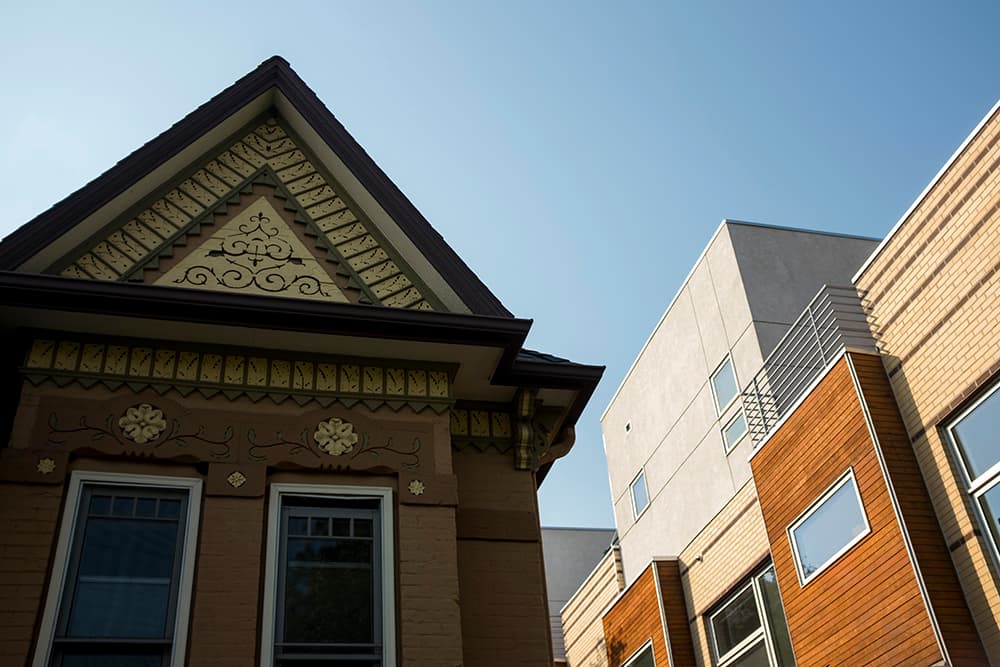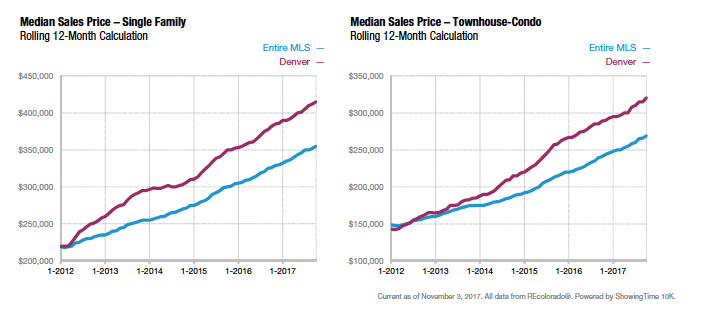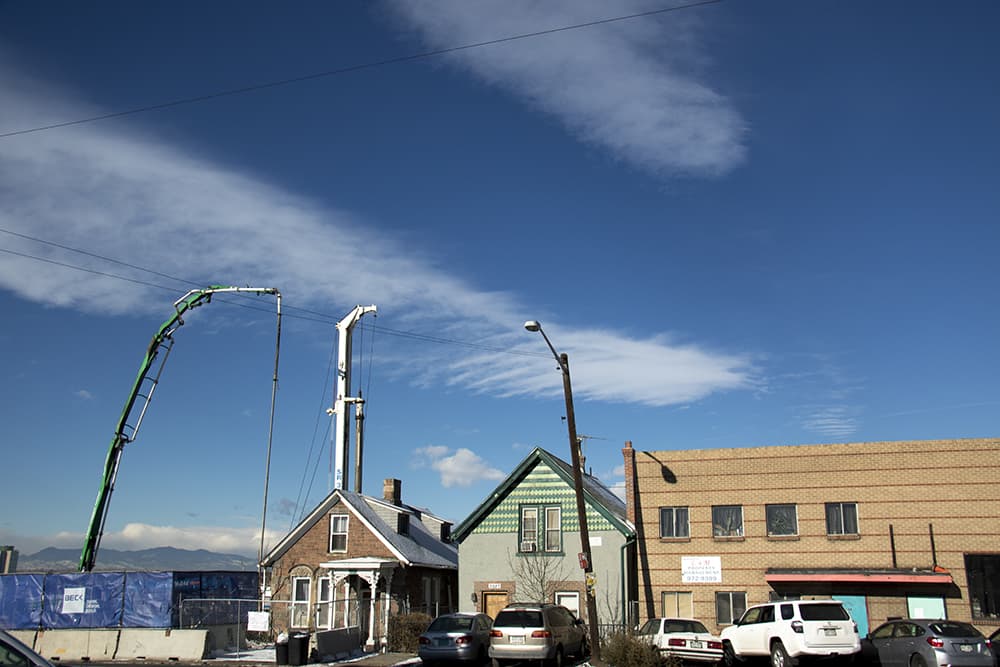
Lindsay Taylor moved to Denver in 2008 and bought a home in the Highlands in 2010.
Taylor, formerly the director of marketing at Swallow Hill Music, a local musician and an active member of the board at the Athena Project, was in Colorado for nine years before she felt she had no choice but to leave.
"We left, which is sad because I made Denver my home and was planning on making Colorado my home for a lifetime, and that just became an impossibility," Taylor said.
You can guess what happened in those nine years. Here's the story.
She and her husband got divorced. They divided up the house, and he bought out her share. They'd bought the 700-square-foot, one-bedroom duplex for $195,000 and it appraised for $330,000 in 2017.
"That was great for him and great for me from a cash perspective," she said. "When I started looking to buy again, I was essentially sitting on a down payment for a new home."
She set her maximum for $325,000, but she realized that she'd been priced out of Denver.
"In April and May, there were definitely more homes, and by the time July came around, if you put in $325,000 in Zillow, for instance, the only thing that came up were condos," she said. "There were no single-family homes.
"We were hopeful that we would be able to find something, and even in the last three months that we were searching, housing prices increased about $50,000."
Taylor and her boyfriend, Brian Nelson, a former instructor at Swallow Hill and local musician, expanded the search to mountain towns.
"The only things that were for sale, and this is still true, are things that are completely run down. It’s like a one-bedroom hunting cabin with no septic system for $90,000 and after that, you can get a one-bedroom for $350,000," Taylor said.
"I cashed out on my home, and then I had nowhere to go."
Taylor and Nelson left Colorado completely. They now live in New Mexico, where they were able to buy a house. They didn't want to say where for fear of destroying the affordability of the vibrant art community they found.
Homeownership is becoming increasingly unrealistic for Denverites working in the arts.
For October 2017, the median sale price for a single-family home in Denver was $436,500, according to a report by the Denver Metro Association of Realtors. That’s a 10.9 percent increase over the median for October 2016, which was $393,500.
For a townhouse or condo, last month’s median sale price was $353,000, a 22.1 percent increase over the October 2016 median of $289,000.
And, as we all know by now, those numbers have been steadily increasing for years. Here’s what the Denver Metro Association of Realtors has seen since 2012:

"You can always find a dump to rent that you can afford," Nelson said, but when you're looking to settle down into a more stable situation and buy, it's far more difficult.
"I think that I could still afford to live in Denver, but there’s just no way to be getting ahead. It’s just a constant month-to-month living situation," he said. "It’s definitely that the arts is a job, for lack of a better word, where you're not on salary and you’re not working 9 to 5, you don’t have as consistent an income."
The conflict then comes down to whether you continue to struggle while making art, get a second job with stable hours and pay or give up your art altogether. Every option means giving something up.
"I was working as a teacher as well, so I did have that income which is fairly consistent. But when you’re working a side job, it’s taking away from actually pursuing your art, so it’s a pretty big compromise," Nelson said. "People who have less income are gonna go somewhere else or they’re going to say, 'Fuck it, I’m not going to be a musician anymore, I’m gonna go sell insurance.' "
An artist exodus is not good for Denver.
"Denver really prides itself on its creative class and having a wonderful arts scene and supporting those people, and if those people can’t afford to live there, the face of Denver is going to change," Taylor said.
On the bright side, things are looking up a bit for educated employees in the nonprofit sector. According to the economic study released by the Colorado Business Committee for the Arts every two years, there was a 5 percent increase in the total number of nonprofit arts jobs and a 9.6 percent increase in payroll from 2013 to 2015. That means more people were getting paid, and they were getting paid more.
But that only applies to one group of people working in the arts, including those working in areas like marketing, fundraising and facilities. As Nelson pointed out, it's different for the artists themselves.
So far, the city's work on artist housing has focused on the latter demographic and the rental market.

In response to the outcry after artists were kicked out of their live-work space at Rhinoceropolis and Glob, the city created the Safe Occupancy Program to help artists get such spaces up to code and continue to live there or find cheaper solutions.
The city is also working with Artspace, a national developer of live-work art spaces, to provide such a building near 41st Street and Brighton Boulevard.
Those are early steps in the right direction to help artists, but they're designed to support lower-income renters, not people like Taylor and Nelson.
"I’ve been a nonprofit employee for the last nine years, and with my nonprofit income — and my boyfriend is a musician, so he has a more variable income —there’s no way we could afford a mortgage," Taylor said. "I was making a very nice salary and what would be considered a nice salary in other cities. Based on my experience, I can only assume other people in the arts are facing the same thing."
And when they told friends about their move, some of them took an interest in following them to this affordable city with a healthy art scene. Nelson said more than a handful are actively talking to him about the move, trying to get a feel for what it would be like.
"The unfortunate downfall is that creative people are going to leave because they can’t afford to live there," he said. "It’s the double-edged sword of growth in a big city."
Do you have a story about housing in Denver? Let me know at [email protected], and if I get enough of them, I'll do a follow-up story.










